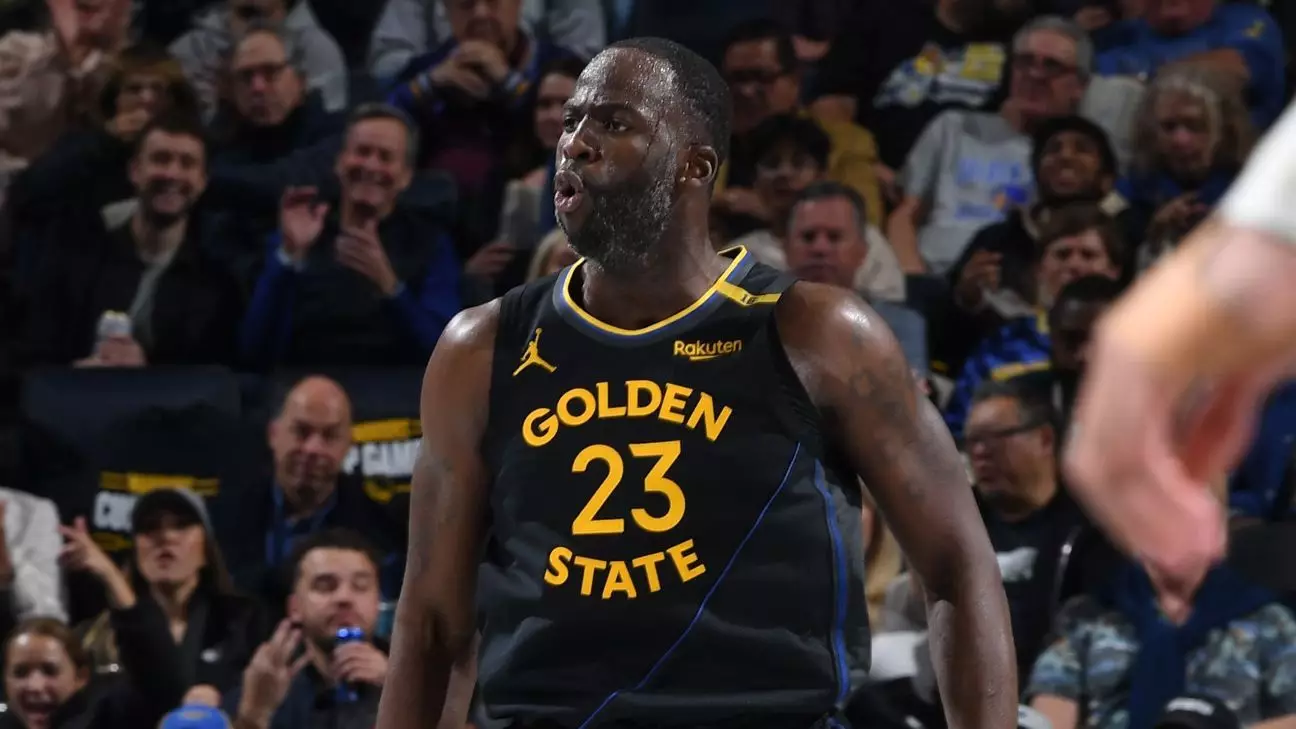Draymond Green, the outspoken forward of the Golden State Warriors, has found himself at the center of numerous controversies throughout his career. A recent event has reignited discussions surrounding his infamous altercation with former teammate Jordan Poole. In a candid apology posted on social media, Green expressed remorse over the incident that had a deep impact on the team’s camaraderie. Two years past the altercation, he is advocating for healing and the necessity of moving forward, not just for himself, but for the entire Warriors organization.
The history of the punch stems from a preseason practice in October 2022. A now-infamous video surfaced capturing the heated moment between Green and Poole, where verbal exchanges escalated into physical conflict. The blow was not just painful for Poole; it marked a fracture in the Warriors’ locker room dynamics. Green’s recent comments indicate a desire to reconcile this moment in history while simultaneously asserting his perspective on being unfairly vilified for a natural reaction to provocation. Yet, the multifaceted nature of this incident stresses the importance of growth and self-reflection, both from Green and the organization at large.
During an episode of “The Draymond Green Show,” Green stated clearly, “I shouldn’t have punched him.” This admission exemplifies a growing sense of accountability that many athletes struggle with in high-pressure environments. While his actions were immediate and reactionary, acknowledging that they deviated from appropriate conduct marks significant progress in his personal development.
Indeed, Green’s approach to handling conflict demonstrates the inherent challenges athletes face when emotions run high. He remarked, “You can’t call a man a B-word and push him and not get hit.” While it’s understandable to defend oneself against physical provocation — Green’s words suggest a fine line exists between self-defense and exacerbating a volatile situation. His decision to later apologize shows an understanding of responsibility; however, navigating the complexities of competition and collaboration is an ongoing challenge for many in the realm of professional sports.
Learning and Growing Through Struggles
The aftermath of the altercation prompted Green to undertake reflective practices, including counseling and therapy. From that crucial juncture, he has shared insights about transforming negative experiences into lessons that foster personal growth. He has emphasized how mandatory check-in calls and therapy allowed him to reassess his behavior and interactions within the team. With eight technical fouls already this season but only one ejection, it appears these efforts might be yielding positive results.
Green’s awareness of transforming his trajectory from a volatile to a more tempered player serves as an inspiring reminder of the power of reflection. His statement regarding accountability also explores how failures can serve as stepping stones rather than definitive marks against one’s character. The nature of competitive sports allows for high stakes and heightened emotions; as Green navigates these pressures, his commitment to personal growth is commendable.
As Green continues his season, he faces both physical challenges and the legacy of past mistakes. His recent left calf injury leads to uncertainty regarding his immediate future on the court, but it simultaneously allows further opportunity for personal introspection. Green’s journey showcases the realities of being in the spotlight, where every action is scrutinized and can ripple throughout a franchise.
In his conversations, he highlights the necessity of considering past incidents within a broader framework of growth, motivating both himself and fellow players to learn from their experiences. This philosophy not only addresses his conducts regarding Poole but also fosters an environment where accountability is prioritized.
Draymond Green’s reconciliatory approach to his past mistakes demonstrates a holistic commitment to both personal and professional development. The complexities of his journey reflect significant issues within team dynamics while also providing insights into managing disputes in high-pressure situations. As Green continues to evolve, both on and off the court, his story serves as a powerful reminder of the potential for transformation in the ever-dynamic landscape of professional sports.

